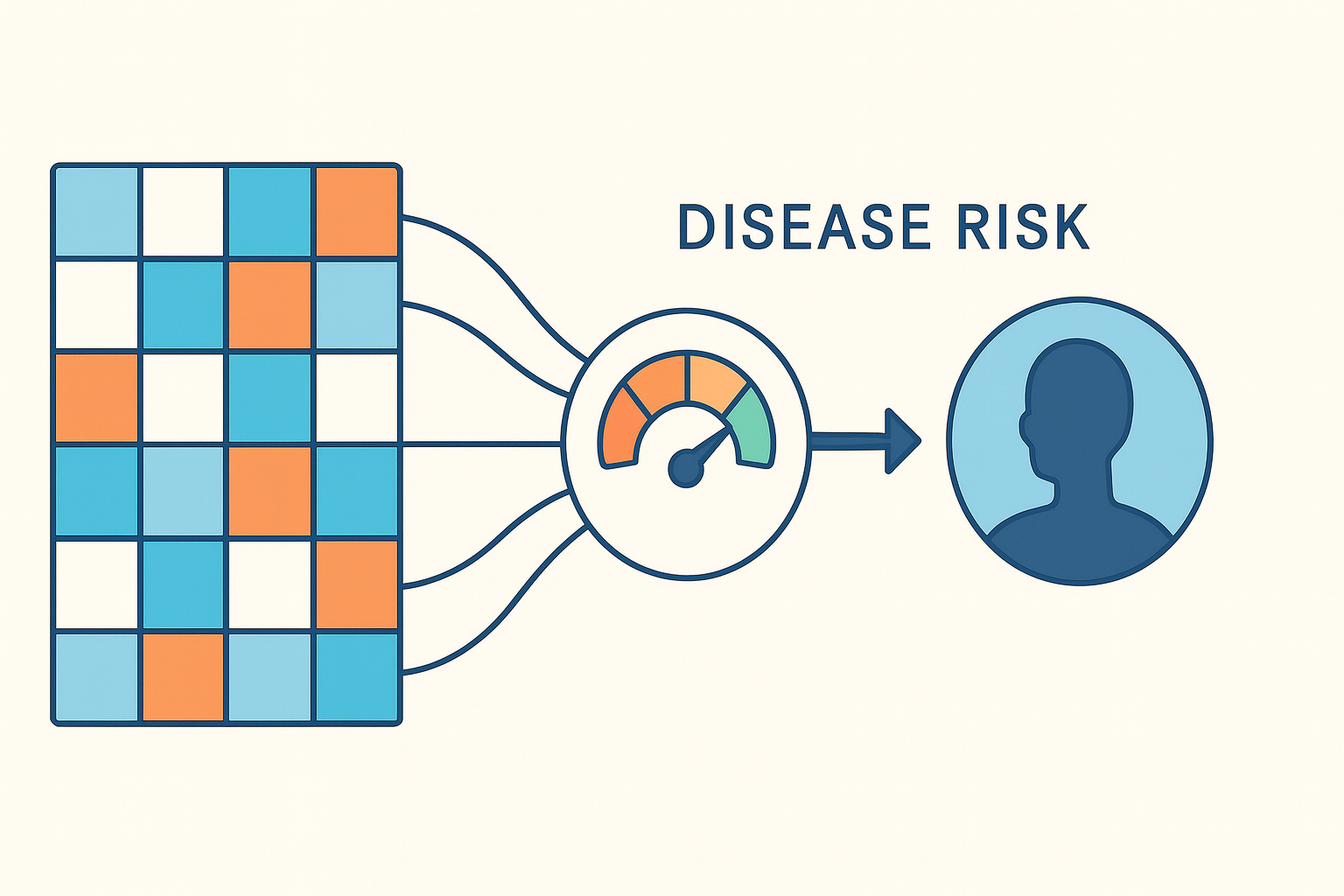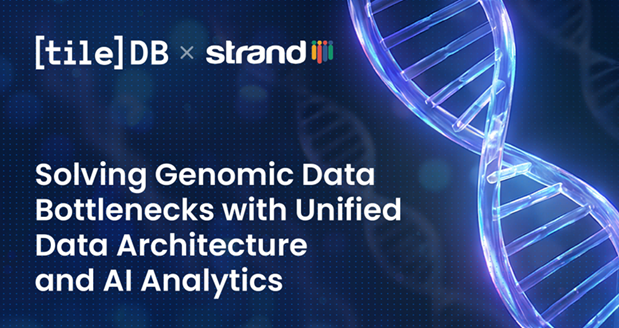Modern research and Genome-Wide-Association Studies show that complex diseases arise not from a single mutation but from the combined influence of multiple genetic factors and environmental elements such as diet and lifestyle. This complexity makes it difficult to assess risk for conditions like Alzheimer’s or cancer, highlighting the need for deeper genomic research to reveal the genetic predispositions that can guide more effective prevention and treatment.
This is where Polygenic Risk Score (PRS) analysis comes in. PRS uses large-scale genetic studies to estimate an individual’s genetic predisposition to complex diseases by combining the small effects of thousands of genetic variants (SNPs) into a single score. Unlike single-gene testing, this provides a more comprehensive view of overall genetic risk, making PRS a powerful tool to,
- Predict Risk: PRS was shown to enhance prediction independently of conventional risk factors, allowing diseases to be detected earlier, even before symptoms or clinical markers appear. It also captures heritability even when the biological mechanisms are unclear.
- Enhance Prediction & Prevention: In young, asymptomatic adults, high PRS may prompt earlier lifestyle changes or treatment initiation, reducing long-term disease burden
- Predict Treatment response: PRS has been shown to correlate with treatment efficacy. For example, cardiovascular drug studies revealed that patients with high PRS benefited more, showing larger absolute and relative reductions in events and mortality (46% reduction vs. 26% in others)
- Stratify patients: PRS enables precise stratification of patients based on their likelihood of responding to specific treatments, improving trial design and clinical decision-making
- Pharmacogenomics: PRS helps predict drug efficacy, toxicity, and adverse reactions. It may also help re-evaluate drugs that previously failed trials, by identifying genetic groups that are more likely to respond.
- Research: PRS is also used to assess shared etiology between diseases and support experimental studies
However, the accuracy of PRS depends heavily on how well we identify which variants matter and how much weight each one should carry.
At Strand, we support PRS analysis by helping build the strong data foundation that advanced models such as Inductive Matrix Completion (IMC), Case/Control training models, and Graph-based models rely on. This includes curating and engineering large-scale genetic datasets, creating gene–disease association matrices, identifying new data sources, and using tools such as PLINK to process and analyze GWAS datasets. We can also support early-stage modeling by testing simple ML models on the curated data and validating results against published findings. These efforts ensure that advanced downstream models can work with clean, well-structured data, helping make PRS more reliable and usable across a wider range of diseases.
And as models expand to cover more disease features and diverse populations, with stronger data foundations in place, PRS can serve as an effective bridge between genomics and precision medicine, helping support earlier detection and more tailored care.
If you’re exploring how PRS can add value to your research, connect with us to know more!












